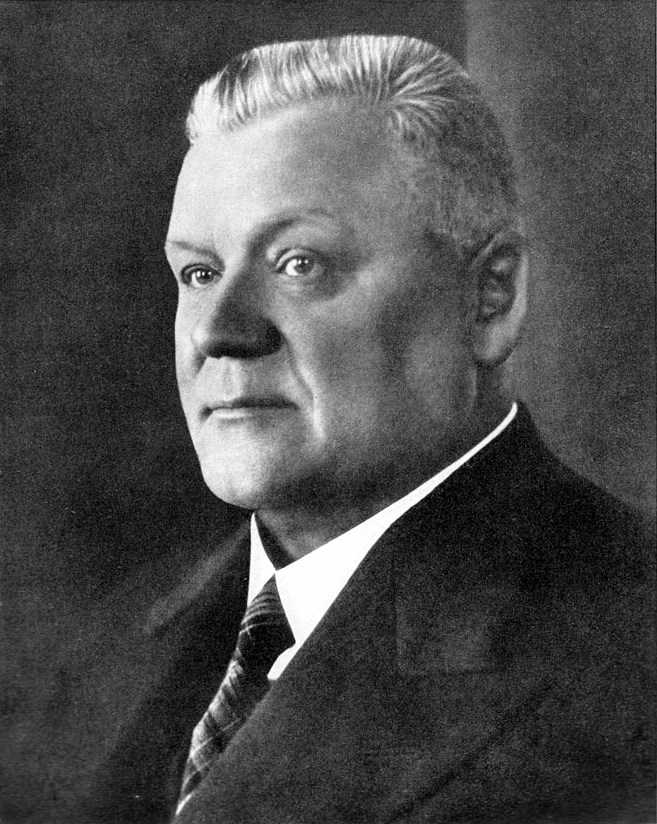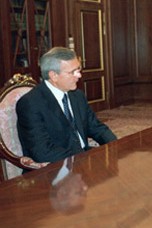|
1995 Latvian Parliamentary Election
Parliamentary elections were held in Latvia on 30 September and 1 October 1995.Dieter Nohlen & Philip St√∂ver (2010) ''Elections in Europe: A data handbook'', p1122 The Democratic Party "Saimnieks" emerged as the largest party in the Saeima, winning 18 of the 100 seats. Results Aftermath Both parties of government, Latvian Way and Latvian Farmers' Union were punished by the voters, losing a substantial number of seats. With no party able to form a working majority, a new government was formed led by independent Andris ≈݃∑ƒìle. References {{Latvian elections Parliamentary elections in Latvia Latvia Latvia ( or ; lv, Latvija ; ltg, Latveja; liv, Le≈£m≈ç), officially the Republic of Latvia ( lv, Latvijas Republika, links=no, ltg, Latvejas Republika, links=no, liv, Le≈£m≈ç VabƒÅm≈ç, links=no), is a country in the Baltic region of ... 1995 in Latvia ... [...More Info...] [...Related Items...] OR: [Wikipedia] [Google] [Baidu] |
1993 Latvian Parliamentary Election
Parliamentary elections were held in Latvia on 5 and 6 June 1993,Dieter Nohlen & Philip Stöver (2010) ''Elections in Europe: A data handbook'', p1122 the first after independence was restored in 1991. Latvian Way emerged as the largest party in the Saeima, winning 36 of the 100 seats. A total of 23 parties participated in the elections, although only eight received 4% or more of votes and won seats. Voter turnout was 91.2%, the highest in the country's history. Only 66–75% of Latvian residents were citizens and qualified to vote, with the majority of those not able to vote being Russian. Results Aftermath A coalition minority government was formed between Latvian Way and the Latvian Farmers' Union. However, the coalition only commanded the support of 48 out of the 100 MPs, meaning that it was heavily reliant on opposition parties to ensure a parliamentary majority. References {{Latvian elections Parliamentary elections in Latvia 1993 in Latvia Latvia Latvia ... [...More Info...] [...Related Items...] OR: [Wikipedia] [Google] [Baidu] |
Latgalian Farmer-Labour Party
The Latgalian Farmer-Labour Party, also known as the Latgalian Progressive Farmers, was a political party in Latvia during the inter-war period. The party contested elections in an alliance with several other parties under the name United List of Latgalian Small Landless Farmers and Latgalian Labour Party. Dieter Nohlen & Philip Stöver (2010) ''Elections in Europe: A data handbook'', p1130 It was led by Jezups Trasuns. History The party first contested national elections in 1922, when it won four seats in the parliamentary elections that year. It was reduced to two seats in 2nd Saeima after 1925 elections, but won three seats in the 1928 elections. The 1931 elections saw the party win five seats in the 4th Saeima. Ideology The party supported radical land reform, including land distribution without compensation for former landowners. Like other parties in Latgale, it took an anti-Polish Polish may refer to: * Anything from or related to Poland, a country in Europe * Po ... [...More Info...] [...Related Items...] OR: [Wikipedia] [Google] [Baidu] |
Latgalian Labour Party
The Latgalian Farmer-Labour Party, also known as the Latgalian Progressive Farmers, was a political party in Latvia during the inter-war period. The party contested elections in an alliance with several other parties under the name United List of Latgalian Small Landless Farmers and Latgalian Labour Party.Dieter Nohlen & Philip Stöver (2010) ''Elections in Europe: A data handbook'', p1130 It was led by Jezups Trasuns. History The party first contested national elections in 1922, when it won four seats in the parliamentary elections that year. It was reduced to two seats in 2nd Saeima after 1925 elections, but won three seats in the 1928 elections. The 1931 elections saw the party win five seats in the 4th Saeima. Ideology The party supported radical land reform, including land distribution without compensation for former landowners. Like other parties in Latgale, it took an anti-Polish Polish may refer to: * Anything from or related to Poland, a country in Europe * Polish ... [...More Info...] [...Related Items...] OR: [Wikipedia] [Google] [Baidu] |
People's Movement For Latvia
Werner Joachim Siegerist (born as Werner-Joachim Bierbrauer, 29 January 1947) is a German-Latvian journalist, author and conservative politician. He is chairman of the anti-communist German Conservatives and co-publisher of the '' Konservative Deutsche Zeitung''. He played a role in the early days of renewed Latvian independence following the collapse of the Soviet Union. Siegerist was born in Neukirchen (Nordfriesland). His father was Latvian and his mother was originally from Wiesbaden and later moved to Schleswig-Holstein, where he grew up. He was active in the Junge Union and the Christlicher Gewerkschaftsbund. Between 1971 and 1973 he was a prominent journalist for the Bild-Zeitung, the biggest newspaper in Europe. In 1980 he founded the Bürgeraktion Demokraten für Strauß and campaigned for the candidacy of Franz Josef Strauss for Chancellor. Following Strauss's defeat, he became the leading reporter of the HÖRZU, a magazine also published by the Axel Springer Verlag ... [...More Info...] [...Related Items...] OR: [Wikipedia] [Google] [Baidu] |
Dieter Nohlen
Dieter Nohlen (born 6 November 1939) is a German academic and political scientist. He currently holds the position of Emeritus Professor of Political Science in the Faculty of Economic and Social Sciences of the University of Heidelberg. An expert on electoral system An electoral system or voting system is a set of rules that determine how elections and referendums are conducted and how their results are determined. Electoral systems are used in politics to elect governments, while non-political elections ma ...s and political development, he has published several books. IDEA Bibliography Books published by Nohlen include: *''Electoral systems of the world'' (in German, 1978) *''Lexicon of politics'' (seven volumes) *''Elections and Electoral Systems'' (1996) *''Electi ...[...More Info...] [...Related Items...] OR: [Wikipedia] [Google] [Baidu] |
Latvia
Latvia ( or ; lv, Latvija ; ltg, Latveja; liv, Leţmō), officially the Republic of Latvia ( lv, Latvijas Republika, links=no, ltg, Latvejas Republika, links=no, liv, Leţmō Vabāmō, links=no), is a country in the Baltic region of Northern Europe. It is one of the Baltic states; and is bordered by Estonia to the north, Lithuania to the south, Russia to the east, Belarus to the southeast, and shares a maritime border with Sweden to the west. Latvia covers an area of , with a population of 1.9 million. The country has a temperate seasonal climate. Its capital and largest city is Riga. Latvians belong to the ethno-linguistic group of the Balts; and speak Latvian, one of the only two surviving Baltic languages. Russians are the most prominent minority in the country, at almost a quarter of the population. After centuries of Teutonic, Swedish, Polish-Lithuanian and Russian rule, which was mainly executed by the local Baltic German aristocracy, the independent R ... [...More Info...] [...Related Items...] OR: [Wikipedia] [Google] [Baidu] |
Andris ≈݃∑ƒìle
Andris ≈݃∑ƒìle (born 16 January 1958) is a Latvian former politician and business oligarch. He served two terms as Prime Minister of Latvia from 21 December 1995 to 7 August 1997, and from 16 July 1999 to 5 May 2000. Early life ≈݃∑ƒìle graduated from the Latvian Agriculture Academy. He began to work in the Government in 1990 when he became the first secretary for the Ministry of Agriculture. In 1993 ≈݃∑ƒìle briefly became the acting Minister of Agriculture. In 1994, he was assigned by then Prime Minister to create Latvia's Privatization Agency, while becoming the acting General Director of it. During this time, he was not in active politics and was able to pursue the leadership role of several key Latvian businesses. He was Chairman of the Supervisory of the Latvian Shipping Company, as well as Supervisory Board member in Unibanka. He was also Chairman of the Supervisory Board of the Avelat Group, which was one of the largest manufacturing and retailing groups in Latvia. ... [...More Info...] [...Related Items...] OR: [Wikipedia] [Google] [Baidu] |
Prime Minister Of Latvia
The prime minister of Latvia ( lv, ministru prezidents) is the most powerful member of the Government of Latvia, who presides over the Latvian Cabinet of Ministers. The officeholder is nominated by the president of Latvia, but must be able to obtain the support of a parliamentary majority in the Saeima. The tables below display all Latvian prime ministers from both the first period of Latvian independence (1918–1940) and since the country regained its independence (1990–present). From 1990 to 6 July 1993, the head of government was known as the chairman of the Council of Ministers. A direct translation of the official Latvian term is minister-president. Although the equivalent is used in some European languages, it is not used conventionally in English. List 1918-1940 Political Party: 1940-1990 Vilis Lācis, JANIS (VILIS) LACIS (1940-1959) Jānis Peive (1959-1963) Vitālijs Rubenis (1963-1970) Jurijs Rubenis (1970-1988) Vilnis Edvīns Bresis (1988-1990) 1 ... [...More Info...] [...Related Items...] OR: [Wikipedia] [Google] [Baidu] |
Socialist Party Of Latvia
The Socialist Party of Latvia ( lv, Latvijas Sociālistiskā partija, abbr. LSP; russian: Социалистическая партия Латвии) is a communist party in Latvia. It is positioned on the far-left on the political spectrum. It was formed in 1994 as a successor party to the Communist Party of Latvia, which was banned in 1991. According to the "programme of the party", the LSP was founded as an organization upholding socialist ideas after the 1991 events that the party describes as a "counter-revolutionary bourgeois-nationalist coup". Overview The current CEOs of the party are Bokišs Fridijs, Burlaks Ingars and Frolovs Vladimirs. Between 1999 and 2015, the position was held by Alfrēds Rubiks, once mayor of Riga and later, leader of the unionist movement and head of the Latvian Communist Party (CPSU platform). He was imprisoned for six years in 1991, on charges of participating in a coup d'état against the Latvian authorities in August 1991. He is not one of ... [...More Info...] [...Related Items...] OR: [Wikipedia] [Google] [Baidu] |
National Harmony Party
The National Harmony Party ( Latvian: ''Tautas Saskaņas partija'', TSP; russian: Партия народного согласия) was a political party in Latvia. The party identified with social democracy. It supported further liberalisation of Latvian nationality law by granting citizenship to non-citizens who had lived in Latvia for at least 10 years. (The present law only allows Soviet-era migrants to apply for citizenship through a process of naturalization). It also supported expanding education in minority languages, particularly Russian. History The roots of the TSP lay within the moderate wing of Popular Front of Latvia, the Latvian independence movement of the late 1980s and early 1990s. Its leader, Jānis Jurkāns, was the first Minister of Foreign Affairs of newly re-independent Latvia, from 1990 to 1992 when he had to leave the government for his stance on relations with Russia. Together with other activists, Jurkāns founded the Harmony for Latvia (''Saskaņa L ... [...More Info...] [...Related Items...] OR: [Wikipedia] [Google] [Baidu] |
Jānis Jurkāns
JƒÅnis JurkƒÅns (born 31 August 1946 in Riga, Latvian SSR) is a Latvian politician, one of the leaders of the Latvian Popular Front, who served as foreign minister (1990‚Äì1992). Biography JƒÅnis JurkƒÅns was born in 1946 into a family with Polish-Latvian roots. In 1974 JurkƒÅns graduated from the Latvian State University, majoring in English. He worked as a lecturer from 1974 to 1978. In 1989 he became an activist of the Popular Front. JurkƒÅns was Minister of Foreign Affairs in Latvia, 1990‚Äì1992. In 1992, Janis JurkƒÅns, together with 9 other Baltic Ministers of Foreign Affairs and an EU commissioner, founded the Council of the Baltic Sea States (CBSS) and the EuroFaculty. He resigned in 1992 due to opposition to the Latvian citizenship law, that in his view threatened social harmony in the country; he also rejected territorial claims to the Abrene district. In 1994, JurkƒÅns founded the National Harmony Party and was the chairman of the party's faction in the Saeima (1994‚ ... [...More Info...] [...Related Items...] OR: [Wikipedia] [Google] [Baidu] |

